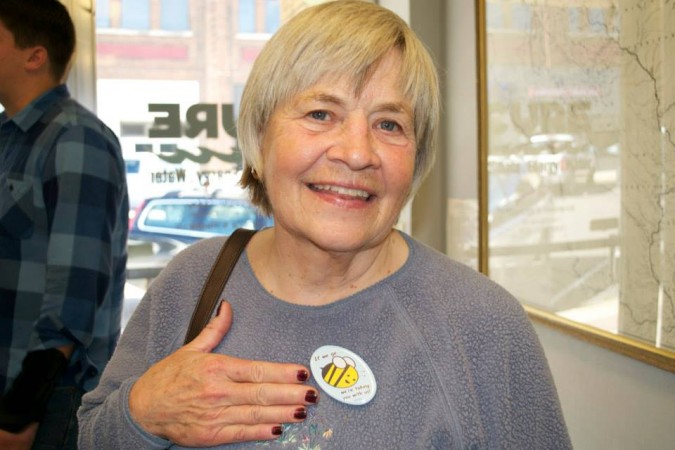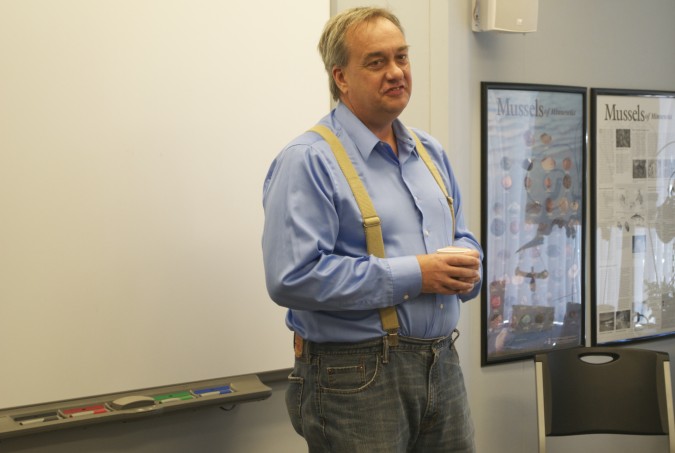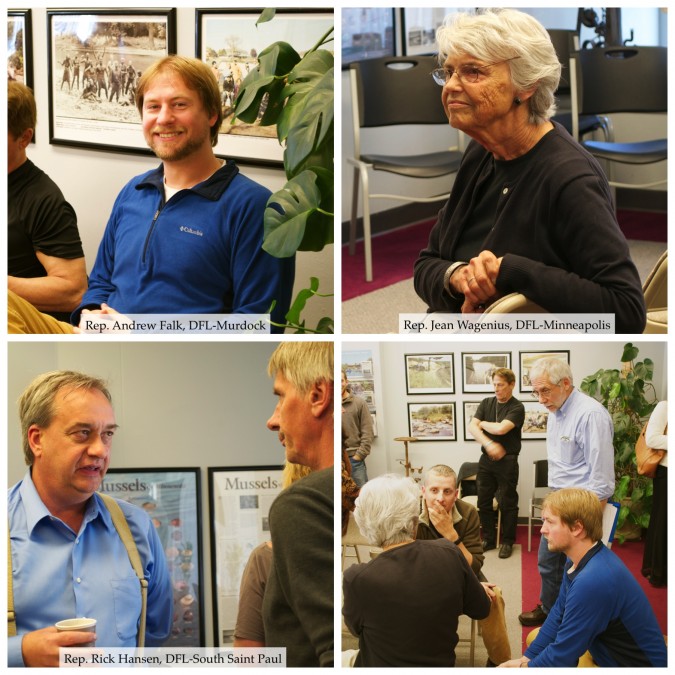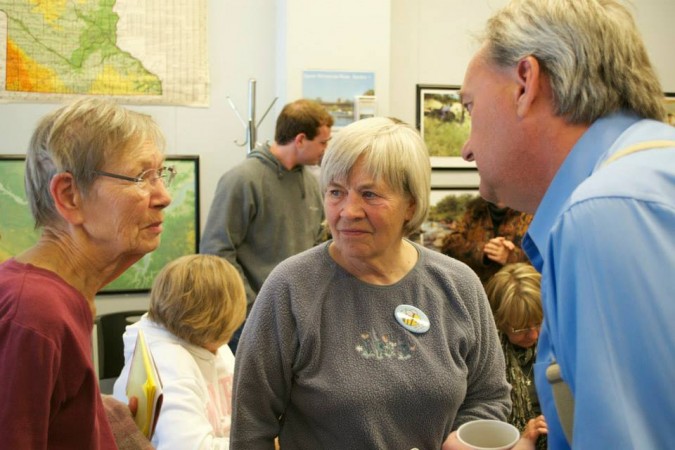
On Friday, October 10th, three Minnesota State Representatives hosted a public policy forum at the CURE office in downtown Montevideo. What vital issue attracted media, farmers, water quality and environmental professionals, state representatives and concerned citizens to attend this forum? Pollinators! Bees, butterflies, beetles and birds are all pollinators that provide the foundation for food production, food webs and native plant production.

Representative Rick Hansen, DFL-South Saint Paul, who authored three of the four pollinator-friendly bills passed in 2014, spoke with forum attendees about the increasing interest in pollinators over the past two years. While this has meant some measured gains, Rep. Hansen also pointed out that the current development of state and federal policy is not sufficient to address the challenges facing pollinator health. Representatives Jean Wagenius, DFL-Minneapolis and Chair of the House Environment Finance Committee, and Representative Andrew Falk, DFL-Murdock were also present to answer questions from attendees.
 Pollinators are a critical component of a healthy ecosystem. Unfortunately, some pollinators appear to be having difficulty maintaining stable populations. Honeybees, which are carefully monitored by their beekeepers, are often the poster child for pollinator decline because increasing cases of so-called bee-kills—in which huge numbers of bees suddenly die, often wiping out multiple hives—are readily noticed by honeybees’ human care-takers. While exposure to pesticides certainly seems to cause bee-kills, pollinator decline is complex issue resulting from a number of influences, some of which are still unclear. Therefore, one of the pieces of legislation included funding for more research on the sources of bee kills as well as funding for the first ever “rapid-response team” to respond to bee kills. To learn more about what is included in the pollinator legislation, click here.
Pollinators are a critical component of a healthy ecosystem. Unfortunately, some pollinators appear to be having difficulty maintaining stable populations. Honeybees, which are carefully monitored by their beekeepers, are often the poster child for pollinator decline because increasing cases of so-called bee-kills—in which huge numbers of bees suddenly die, often wiping out multiple hives—are readily noticed by honeybees’ human care-takers. While exposure to pesticides certainly seems to cause bee-kills, pollinator decline is complex issue resulting from a number of influences, some of which are still unclear. Therefore, one of the pieces of legislation included funding for more research on the sources of bee kills as well as funding for the first ever “rapid-response team” to respond to bee kills. To learn more about what is included in the pollinator legislation, click here.
There was no shortage of questions and concerns from the over 25 forum attendees that provided for a lively discussion with the legislators. Topics addressed included the lack of funding and resources to enact conservation practices, the lack of local enforcement of current regulations and laws and the importance of road ditches as pollinator habitat.
Rep. Hansen concluded the 2-hour forum by concurring with attendees that a lot of work remains; he also pointed to out that the strong bipartisan support for pollinator health is a cause for hope.
Blog post and photos by Sarina Otaibi, Director of Communications and Engagement.
